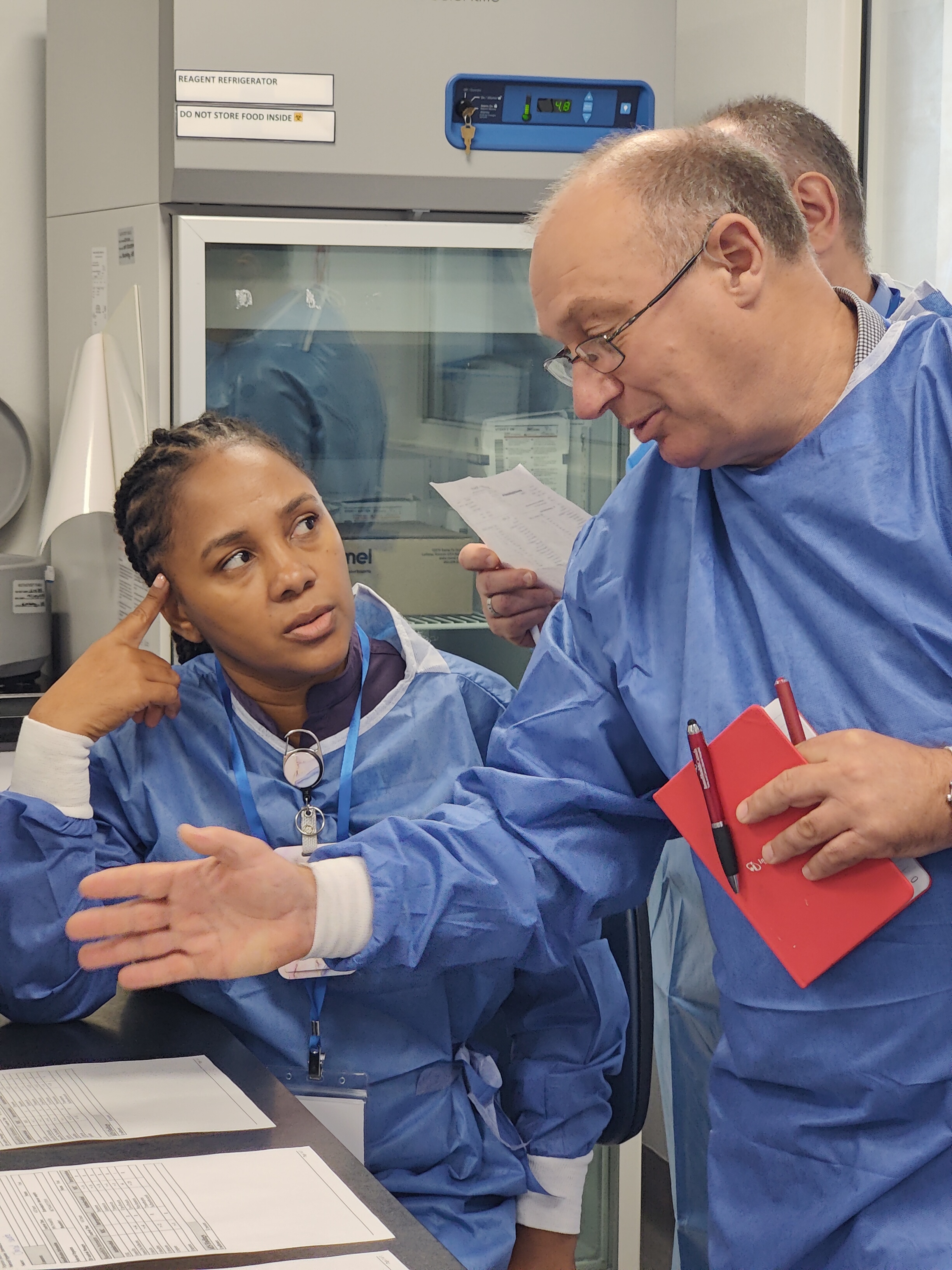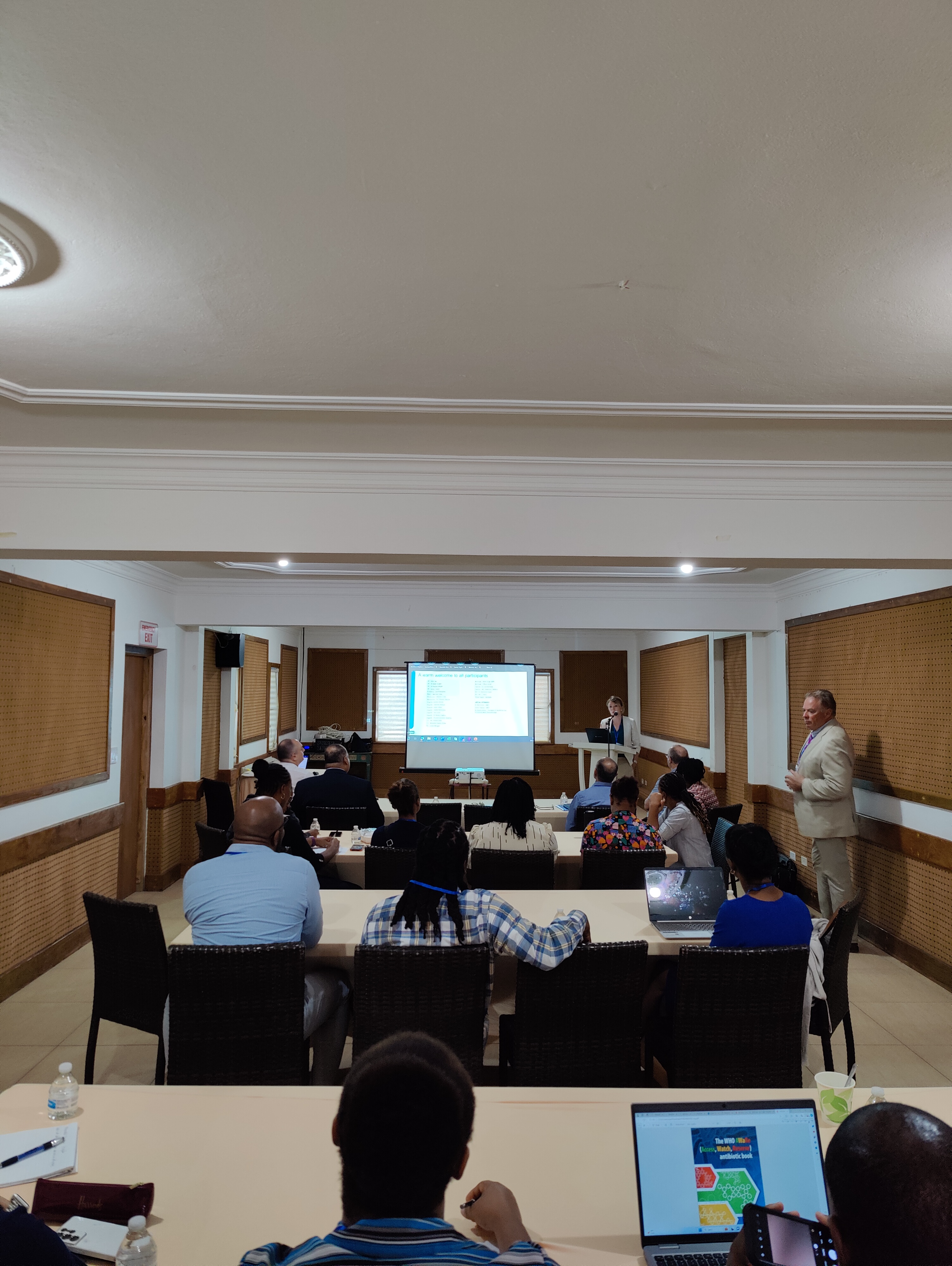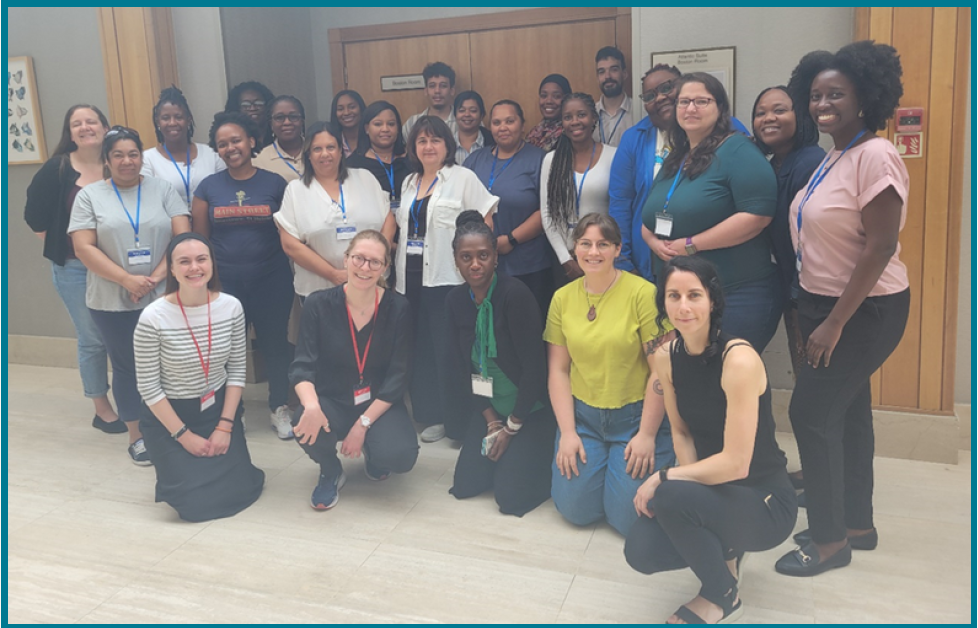
Supporting field epidemiology expertise in the UKOTs: Fundamentals in data management, surveillance, and outbreak investigation skills’ training course
Katie Thorley, UK Field Epidemiology Training Programme (UK FETP) Fellow, talks about designing and delivering a field epidemiology training course for colleagues across 8 UK Overseas Territories.
July 2024
In July 2024, UKHSA’s UK Overseas Territories (UKOTs) Programme teamed up with the UK FETP to deliver a 4-day ‘Fundamentals in data management, surveillance, and outbreak investigation skills’ training course for colleagues from the UKOTs who work in surveillance, epidemiology, and related professions. 20 attendees travelled from 8 UKOTs to join us in London.
As a UK FETP fellow, I had the opportunity to develop the training alongside Iona Smith, UK FETP Fellow (2022 to 2024), with help from Alison Sykes, Principal Scientific Coordinator from the UK FETP team and Petra Manley, Consultant Epidemiologist from the UKOTs Programme.
Strengthening field epidemiology capacity in the UKOTs
Back in 2023, Joanna Garner, UK FETP fellow (2021 to 2023), conducted a learning needs assessment of staff in the UKOTs who undertake epidemiology and surveillance activities. With small populations and therefore small health and public health workforces, where individuals often fulfil multiple roles, time to focus on field epidemiology can be limited.
The learning needs assessment identified areas where training in field epidemiology skills would contribute to workforce development in the UKOTs, becoming the basis for our course and its aims. Also, while most of our course participants had had some experience with surveillance data, many had not previously supported an outbreak investigation, so this was a topic we wanted to include in the training.
The course was delivered as a partnership between the UKOTs Programme team and UK FETP due to our aligning commitments to emergency preparedness overseas. A goal of the UK FETP is to support UKHSA’s global public health workplan through provision of fellows and staff to support international response and capacity building, and I’m grateful for the opportunity the training course has provided us to share our experience.
Highlights from the training course
We delivered the training through a mix of lectures, individual Excel-based exercises, and group activities and we were excited by the high level of interest we received. That said, the number of attendees presented a logistical challenge and our core training team of four also needed additional teaching support. We were very grateful to the further 5 UK FETP fellows and 2 UK FETP scientific coordinators who helped facilitate the in-person case study and online sessions, and the UKOTs Programme team, who worked tirelessly to ensure participants were able to travel to and from the course as smoothly as possible.
One of the notable parts of the course was the introduction to epidemiological concepts, which was supported by a field visit to the John Snow memorial pump in Central London marking the historical cholera outbreak of 1854. Following a review of John Snow’s efforts during the course, the field visit provided an example of epidemiology in action - highlighting the importance of describing time, place and person!
Bringing together colleagues from across so many territories with a wealth of different work experiences, from environmental health to clinical nursing, contributed to a strong feeling of peer-to-peer learning and discussion throughout the training course. Activities, including a competitive game of ‘people bingo’, supported the building of a network between the participants.
Empowering the participants to apply insights post-course
Following the training course, participants were tasked to analyse a local dataset and produce a surveillance report, to reinforce the concepts and skills learnt in the course. We had a great turnout when we recently reunited remotely via Teams for participants to present their findings and receive feedback from their peers and facilitators.
I was delighted by how much the attendees enjoyed learning more about public health issues impacting the UKOTs and how they had benefited from applying the course knowledge and skills to data they were familiar with. It was wonderful to see that the social and supportive feel of the in-person training transferred to the online session, with participants providing positive and constructive comments for one another.
Apply for the UK FETP fellowship (2025 to 2026)
The success of the training course has been a huge encouragement and I hope the shared course resources will continue to support participants going forward and the delivery of similar training courses for capacity building in the future.
Find out more about the UK FETP by visiting our GOV.UK page, and from Monday 2 December you can apply to be in the new cohort of fellows for the September 2025 programme. Applications close on Sunday 22 December. For further details, please contact FETP@ukhsa.gov.uk.
_____________________________________________________________________________________________________________________________
Empowering St Helena to enhance their Emergency Preparedness
April 2024
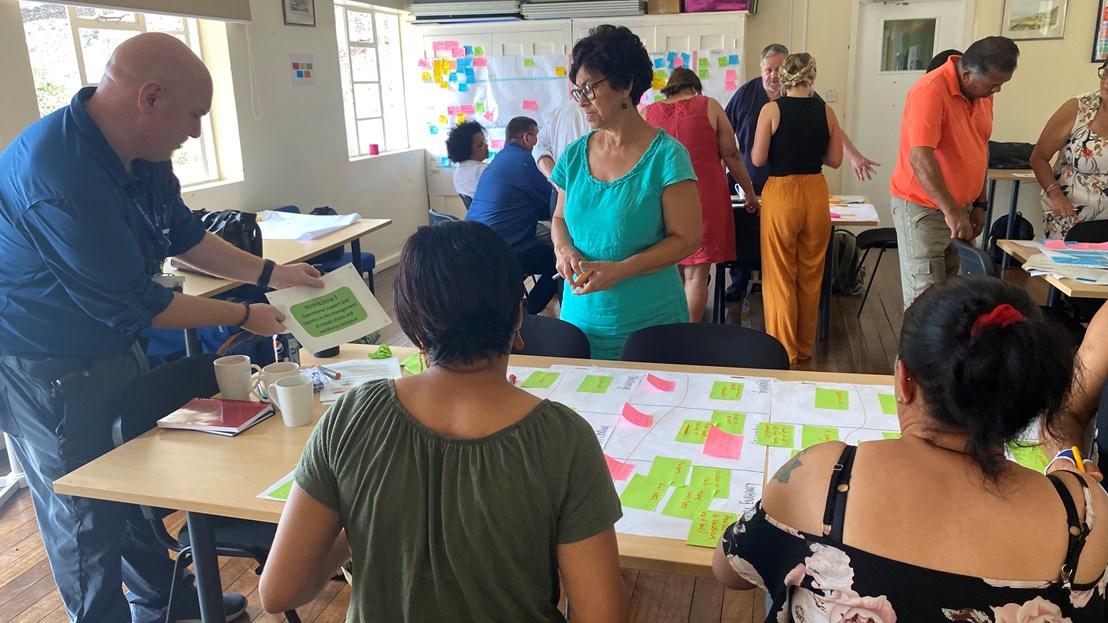
In this blog, Kathy Wainwright, Senior Emergency Preparedness Manager, shares what she learned from a recent visit to St Helena.
In January, I went with colleagues from the National Response Centre and UK Overseas Territories (UKOT) Programme to St Helena to conduct a comprehensive After-Action Review (AAR) of the island's response to the COVID-19 pandemic. The visit was part of the UKOT Programme's commitment to supporting health security and emergency preparedness overseas. Our focus was on empowering the island's workforce to independently undertake future debriefing activities—a crucial step in building local capacity and resilience.
We started the journey with three days of introductory AAR training for 40 dedicated colleagues from across St Helena Government. I was so impressed by the enthusiasm and engagement during these sessions, and it set a promising tone for the whole visit.
The AAR itself proved to be a valuable forum for reflection and collaboration. Bringing together representatives from various sectors, including Health and Emergency Planning, we delved into thematic areas essential for effective response and recovery. From country-level coordination to community engagement and logistical support, each aspect was scrutinised to identify best practices and address challenges, deriving proposed actions for continuous improvement.
The challenges of emergency planning in a small island
Throughout our stay, we had the privilege of engaging with a diverse array of St Helena colleagues, including the Director of Health and Social Care, the Minister for Health and Social Care and the Emergency Planning Team. I learned a lot through these interactions, particularly the challenges of working within a small island context, where limited resources and staffing allocations pose ongoing challenges. For example, emergency planning colleagues who navigate a demanding schedule of training and exercises, despite constraints in resources in the island. Recognising the importance of reinforcing response skills, we discussed opportunities for enhancing the island's incident management system and providing peer support in developing end-to-end response mechanisms.
The St Helena visit helped us to identify how to make the most of overseas visits next time. We experienced challenges in planning and session organisation which highlighted the importance of streamlined coordination, particularly in resource-constrained environments.
The visit also highlighted the challenge of ensuring comprehensive stakeholder engagement and participation in AAR sessions, where key players in the given response were either unavailable to attend, or no longer in post on island.
The importance of UKHSA's role in global emergency response
Despite these challenges, the experience reaffirmed the importance of open and honest debriefing, even within close-knit communities where personal relationships may influence feedback dynamics. While the AAR sessions provided a platform for constructive feedback, I was conscious of potential barriers to candid dialogue and strive for inclusivity in future events.
As we compile our findings into a formal report and action plan, the journey doesn't end here. We remain committed to supporting our colleagues in St Helena, providing ongoing guidance in plan implementation and response refinement. Together, we continue to strengthen resilience and readiness, ensuring that communities are better prepared to face future challenges.
Visiting colleagues in St Helena provided invaluable opportunities to immerse ourselves in the unique contexts of small islands, fostering deeper understanding and empathy. Through the sharing of knowledge and collective efforts, we paved the way for a safer and more resilient future on the island.
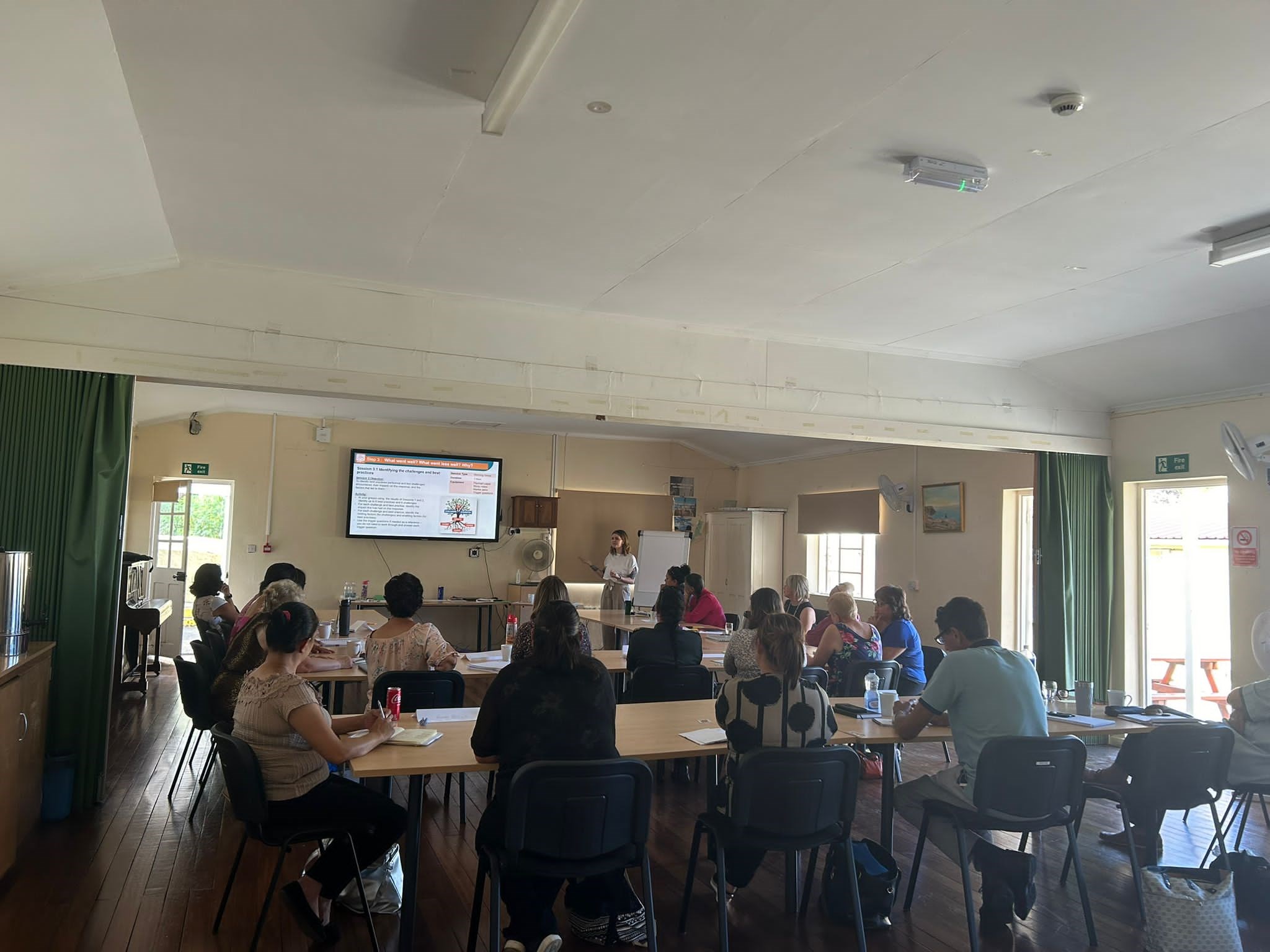
_____________________________________________________________________________________________________________________________
Reducing the impact of antimicrobial resistance in the Caribbean
November - December 2023
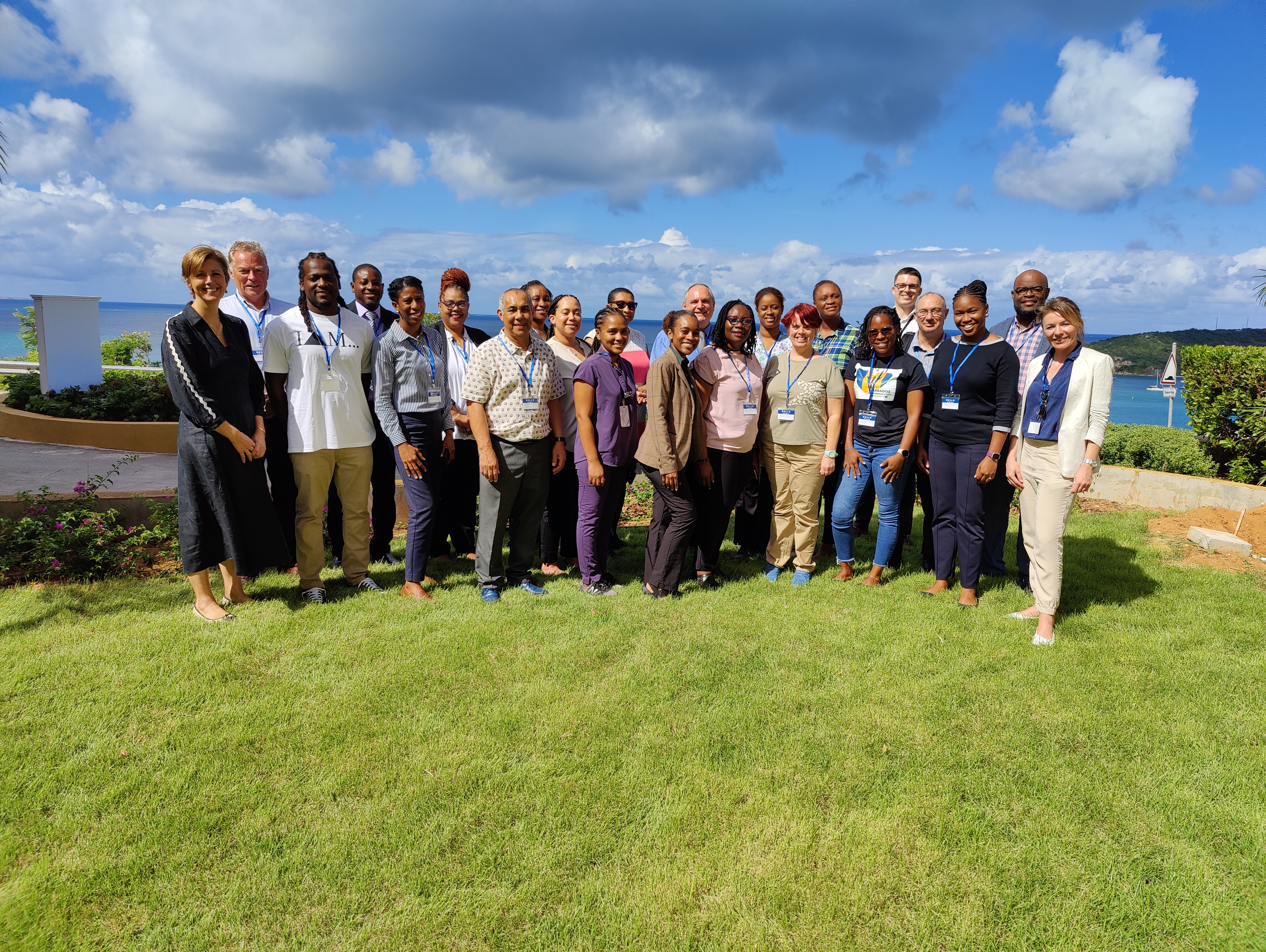
Antimicrobial resistance (AMR) is a particular issue in the Caribbean region, which is home to six UK Overseas Territories (UKOTs). It has high AMR rates and considerable gaps in data. To address this, the UKOTs Programme hosted an innovative, three-day Antimicrobial Stewardship (AMS) Workshop in Anguilla, in December. The Workshop aimed to address AMR and facilitate AMS by using a cooperative and wider systems approach, to educate and assist health care professionals in adhering to evidence-informed guidelines on prescribing and dispensing antimicrobials.
The UKOTs Public Health Programme, situated within Global Operations in Health Protection Operations Group, has been expanding its work around AMR through technical support, the development of peer networks, and supporting increased capacity and capabilities around diagnostics and surveillance.
Antimicrobial Stewardship Workshop
The AMS Workshop was attended by 16 multidisciplinary professionals from across the Caribbean UKOTs (Anguilla, Bermuda, British Virgin Islands, Cayman Islands, Montserrat, and the Turks and Caicos Islands). There were also representations from the Pan American Health Organization (PAHO), the Caribbean Health Agency and UKHSA.
The workshop delivered two workstreams to cater to the different audiences in attendance. There were practical laboratory sessions that focused on the detection of AMR; and professional development sessions that focused on AMS and AMS accreditation, diagnostics, the use of the Microguide in prescribing, and surveillance approaches.
The rollout of the ‘Microguide application’ has been a substantial component in enhancing territory capabilities. This free mobile application allows clinicians and prescribers to access internationally recognised prescribing guidelines with ease, ensuring continuity and quality of care.
The workshop topics were primarily delivered by UKOT Programme members: Matthew Dryden, Consultant in Microbiology and Infection, and John Lee, the UKOTs Laboratory Technical and Quality Manager. The laboratory sessions were also supported by Geoffrey Benjamin, a Senior Biomedical Scientist from the St Helena Government, who provided expertise from a similar small island context, and a representative from the Washington office of PAHO, who discussed their role in supporting AMS in small island states.
Matthew Dryden said:
“AMR continues to be a major global public health threat and addressing it remains a key international priority. Tackling AMR is one of our strategic priorities: to reduce the impact of infectious disease and antimicrobial resistance.
“Feedback from the workshop was incredibly positive and signaled a renewed motivation to tackle AMR in the Caribbean region. The workshop will serve as a catalyst for greater collaboration and a platform for the UKOTs Programme to build on this work over the coming year.”
